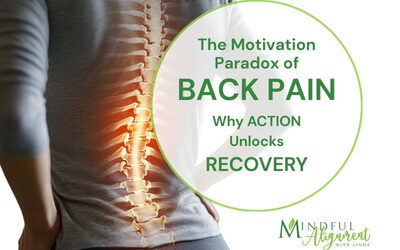Meditation is the CURE
Meditation Alongside Exercise and Nutrition
Regular exercise and proper nutrition are commonly recognized as pillars of good health. Still, meditation is another often overlooked practice that can significantly contribute to overall wellness. Beyond its role in stress reduction and mental clarity, meditation has increasingly been linked to the prevention of chronic diseases.
Leading Causes of Mortality
Chronic diseases, such as heart disease, diabetes, hypertension, and even certain forms of cancer, are among the leading causes of mortality worldwide. According to the World Health Organization (WHO), chronic diseases are responsible for 71% of all deaths globally, with cardiovascular diseases alone accounting for 17.9 million deaths annually. Moreover, the Centers for Disease Control and Prevention (CDC) reports that chronic diseases are prevalent in the United States, where six in ten adults have at least one chronic condition, and four in ten adults have two or more chronic diseases.
Cornerstones of Disease Prevention
Physical activity and a balanced diet are cornerstones of disease prevention and well-being. Exercise helps to maintain healthy body weight, improve cardiovascular health, boost immune function, and enhance mental health. According to the American Heart Association (AHA), engaging in at least 150 minutes of moderate-intensity aerobic activity or 75 minutes of vigorous-intensity aerobic activity per week can significantly reduce the risk of heart disease, stroke, and diabetes. Likewise, proper nutrition provides essential nutrients that support bodily functions, regulate metabolism, and reduce the risk of chronic diseases. The American Cancer Society emphasizes the importance of a diet rich in fruits, vegetables, whole grains, and lean proteins in lowering the risk of cancer and other chronic conditions.
The Benefit of Meditation on Disease Prevention
Meditation, rooted in ancient spiritual traditions, has gained recognition in modern science for its profound effects on the mind and body. This practice involves focusing on a particular object, thought, or activity to cultivate mindfulness and awareness. While meditation is commonly associated with stress reduction and relaxation, its benefits extend far beyond tranquility.
Chronic stress is a significant risk factor for numerous chronic diseases. Prolonged stress can weaken the immune system, increase inflammation, and contribute to the development of conditions such as cardiovascular disease and autoimmune disorders. A study published in the journal Health Psychology found that mindfulness meditation interventions can reduce perceived stress and improve immune function, suggesting a potential protective effect against chronic diseases.
Inflammation is central to the pathogenesis of many chronic diseases, including arthritis, diabetes, and certain cancers. Research suggests that meditation can modulate inflammatory pathways, thereby reducing systemic inflammation and protecting cellular health. A meta-analysis published in JAMA Internal Medicine examined the effects of mindfulness meditation programs on inflammatory biomarkers and found that meditation was associated with reduced levels of C-reactive protein (CRP), a marker of inflammation linked to heart disease and other chronic conditions.
The Mind-Body Connection on Our Health
The mind-body connection is a fundamental aspect of holistic health. Our thoughts, emotions, and beliefs profoundly impact our physical well-being. Meditation cultivates awareness of the mind-body connection, allowing individuals to develop greater insight into their thoughts and feelings. This heightened awareness can lead to healthier lifestyle choices, improved stress management, and greater overall well-being.
Integrating Meditation with Exercise and Nutrition for Overall Health and Wellness
While meditation, exercise, and nutrition offer unique benefits, their combined effects outweigh the sum of their parts. When practiced together, these lifestyle interventions create a synergistic effect that promotes holistic health and disease prevention. Meditation enhances the mind-body connection, making individuals more attuned to their bodies needs and better able to adhere to healthy habits such as regular exercise and nutritious eating.
Integrating meditation into your daily routine doesn’t have to be complicated.
Here are some practical tips to help you get started:
- Start small: Begin with just a few minutes of meditation each day and gradually increase the duration as you become more comfortable.
- Find a quiet space: Choose a quiet, comfortable environment where you can meditate without distractions.
- Focus on your breath: Use your breath as a focal point for meditation. Observe the sensations of breathing in and out, allowing your mind to settle into the present moment.
- Be patient and compassionate: Meditation is a skill that takes time to develop. Be patient with yourself and approach your practice with kindness and compassion.
- Stay consistent: Establish a regular meditation routine by setting aside time each day for practice. Consistency is vital to experiencing the full benefits of meditation.
Incorporating meditation into your lifestyle can be a powerful tool for preventing chronic disease and promoting overall well-being. By cultivating mindfulness, reducing stress, and enhancing the mind-body connection, meditation complements the benefits of exercise and nutrition, creating a holistic approach to health maintenance. Whether you’re new to meditation or a seasoned practitioner, making time for this practice can have profound and lasting effects on your health and vitality. Start small, be consistent, and watch meditation’s transformative power unfold.
Here are a few videos to help guide you on your health and wellness journey:
Are you tired of living with pain?
Are your activities and daily choices determined by your level of pain?
Are you ready to change your life for the better and gain back your physical freedom?
My unique and custom designed approach comes from years of training, education and experience. Together, we will get you back to living pain free and enjoying life.
Sign up for a private session today
It’s never too late to try something new.

Related Articles:
Beyond Calcium: The Power of Yoga for Bone Health
Discover how yoga supports bone health and osteoporosis prevention. Learn science-backed poses that strengthen your skeleton and reduce fracture risk.
The Motivation Paradox: Action is the Catalyst for Healing Back Pain
Discover the Motivation Paradox of Back Pain—why waiting for motivation keeps you stuck and how action is the true catalyst for healing. Learn science-backed strategies to break the pain cycle and reclaim mobility.
Transform Back Pain Anxiety: From Uncertainty to Empowerment
Discover how to navigate pain anxiety with empowerment. Embrace uncertainty and reclaim your healing journey through mindfulness and resilience.
Transforming Your Relationship with Back Pain: A Mindset Revolution
Back pain is more than a physical challenge—it's a profound psychological journey. The real battle isn't just in your muscles and joints, but in your mind. Your thoughts can either be a prison or a pathway to healing. Reframing Your Inner Narrative When chronic pain...




